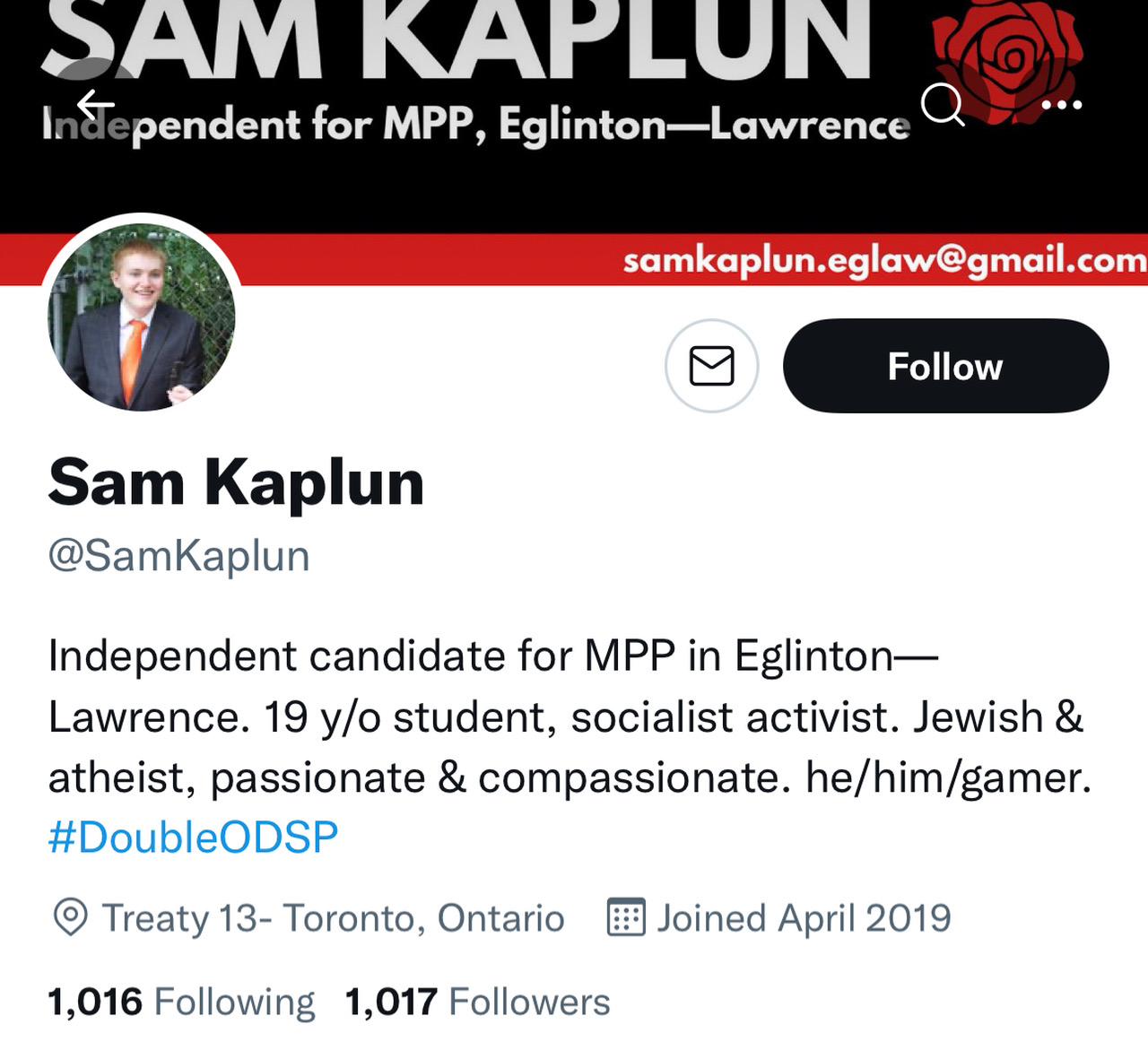This is the 13th in a series of opinion columns on the 2022 Ontario provincial election, written by Josh Lieblein for The CJN.
We’ve now come to the point in the pre-election cycle where candidates are disqualified for unsatisfying and frequently arbitrary reasons—a practice that will continue up until the beginning of the writ period on May 4, and possibly partway through the June 2 voting day itself.
Going into the last days of April, the NDP seems to be making the most headlines for removals, with Brampton MPP Kevin Yarde losing a nomination race after the party didn’t protect him, and prospective Eglinton-Lawrence candidate Sam Kaplun being informed that he’d not be allowed to continue because he publicly liked a tweet calling Premier Doug Ford a murderer.
The days leading up to the official campaign start, however, may bring more Liberal disqualifications—and to be quite honest there isn’t a world of difference between an Ontario PC MPP quitting citing the old excuse of “needing to spend more time with family” and a candidate being told they’re off a team they never really had a chance to join.
And yet, no matter how many elections we go through where this candidate cull happens, it always comes as a surprise to those involved, and the same questions always come up.
Why this person, and not this other person? Who gave the order to disqualify? How come they took so long to let the candidate know, or, in some cases, how come it happened so abruptly? Is it evidence of racism or antisemitism? Sexism? A party that takes its grassroots for granted?
When I reached out to 19-year-old candidate Sam Kaplun, he could—understandably—only give me partial answers to these questions.
While being Jewish was never mentioned during Sam’s vetting process, he did find out that the party knew about Steve Parish’s voting record. Parish, the former mayor of Ajax, nonetheless passed the party’s vetting process before he was also dropped as a candidate in January for having defended a Nazi’s namesake street.
Sam’s story had many turns I’d heard before. For example, party staff expressed regret over the Parish situation when Sam raised concerns and encouraged him to provide suggestions to improve Jewish outreach. “The underlying issue is less about antisemitism per se,” he says, “and more about the fact that the party doesn’t sufficiently listen to or value any of its grassroots members.”
(His name will still be on the ballot as an independent in the riding—won in 2018 by Robin Martin of the Ontario PCs—which has an estimated Jewish population of 16.5 percent. The province currently has a Conservative MPP who was elected at 19, Sam Oosterhoff.)
Sam suspects that the reasons for his rejection were not provided to him in full, which is likely because the lack of transparency is the point. If your average candidate was sure that they could follow a set of rules and avert the wrath of the party brass, then they wouldn’t walk around self-censoring out of fear that anything they did could be the thing that blew up their political career.
This idea that a disqualified candidate believes that they are in some way responsible for being disqualified is crucial to the process—and in my experience it is a most deliberate process.
There are staffers who specialize in coming up with plausible-enough fig leaves to justify upending someone’s political dreams. I am aware of at least one practitioner of this art who attempted to disqualify half the Ontario PC party from voting against a leader during a leadership review, and who was rewarded for their trouble by having their last name become synonymous for a time with the practice of sketchy cancellation.
Disqualifications happen for the same reason that people who should be disqualified aren’t: because some people have power, and others don’t, and those with power are reminding this fact to those without.
Political parties are hierarchical, and enough people know it’s that way (and believe that it should stay that way) to keep their mouth shut—even when they know something’s not right and they should speak up.
Josh Lieblein can be reached at [email protected] for your response to Doorstep Postings.









